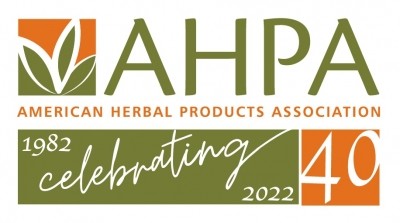AHPA's McGuffin on DSHEA 2.0, CBD's path forward, and more
Speaking with NutraIngredients-USA, Michael McGuffin, President of the American Herbal Products Association (AHPA), said: “We look at the marketplace where there are hundreds of thousands, millions of Americans using these [CBD] products, and they’re not regulated. They’re simply not regulated. FDA’s not inspecting their cGMP manufacturing facilities, if they’re submitting serious adverse events, it’s voluntary. FDA is only looking at claims – drug claims – or mislabeled products that don’t contain the amount of the ingredient declared.
“That’s completely inconsistent with FDA’s own stated priority to protect public health,” said McGuffin. “They should at least get it done for hemp.”
“In the absence of FDA getting anything done, we’ll take the next path if that’s 841.”
H.R. 841 is the Hemp and Hemp-Derived CBD Consumer Protection and Market Stabilization Act. The act is supported by a multitude of dietary supplement and hemp groups.
Recently, four consumer groups and a prominent physician from Harvard sent a letter to members of Congress calling for the blocking of H.R. 841, which the groups describe as “a political decision to legislatively override a careful and scientific evaluation of CBD safety would create a terrible precedent”.
Signatories to the letter were the National Consumers League, the Consumer Federation of America, the Center for Science in the Public Interest, and Consumer Reports, plus Harvard’s Dr Pieter Cohen.
Speaking with NutraIngredients-USA, Michael McGuffin, President of the American Herbal Products Association (AHPA), said that it is important to put the letter in context and understand that there are other consumer groups, such as Citizens for Health and the Alliance for Natural Health.
“They’re differently structured consumer groups than the ones who signed that letter, and both Citizens for Health and the Alliance for Natural Health strongly support H.R.841 and they’ve issued strong statements of support and thoughtful comments on amendments that would, for example, allow greater access to truthful and not misleading claims about dietary supplement products to remove restrictions rather than add more restrictions.”
Reforms
The letter also called for significant reforms to the Dietary Supplement Health and Education Act (DSHEA), including mandatory product listing and registration, closing the GRAS loophole, bolstering Adverse Event reporting, labeling of supplement-drug interaction warnings, allocating additional resources to the ODSP and strengthening enforcement, and more.
On mandatory product listings McGuffin said that AHPA does not oppose this, but nor does the association currently support such a proposal.
“The current robust regulatory structure is sufficient so that we don’t support this,” he said. “The AHPA membership at large has not been convinced that there is any real value to this. We do have members who think it’s a good idea, but we have more who say it’s inevitable so let’s make sure we’re at the table.
“Show us how it will improve the consumer experience: How does it help consumers? How does it help industry? How does it help the Food and Drug Administration? We’re waiting for someone to convince us of that.”
On calls to bolster adverse event reporting, McGuffin said that dietary supplements may be the safest class of goods regulated by the Food and Drug Administration.
“In our view, there is simply no reason to burden the dietary supplements industry or the FDA with the noise that would be generated from reporting all adverse events,” he said.
Lessons from COVID
McGuffin also discussed the upcoming 9th Botanical Congress, which has the theme “Botanicals in the time of COVID”. The one-day event on Monday, May 24 will feature Cara Welch, PhD, Acting Director, Office of Dietary Supplement Programs (ODSP) at the FDA.
“We know that FDA has made significant adjustments to dealing with things like facility inspections. That’s what she [Dr Welch] is going to talk about: How FDA regulated its processes to deal with COVID,” said McGuffin.
“We have an ongoing relationship with the Office of Dietary Supplement Programs… we asked them, how much of this that you have implemented over the last two years is going to carry forward? This remote records access, which is a voluntary program, do you see that as useful going forward? That’s what we want Cara to talk about. Where did they change, and what did they learn that may be useful as we become more efficient in conducting inspections and undertaking other FDA enforcement activities.”
For more information about AHPA’s Botanical Congress please click HERE.








